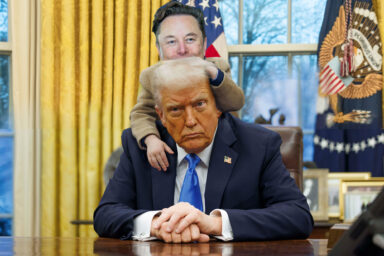What Fidel Castro Said When JFK Died, Part 2
Speech Broadcasted on Cuban Radio and TV, November 23, 1963
Part 2. Castro talks about the initial reactions in the US to the assassination, and how reactionary forces took advantage of the event to unleash a state of anti-Soviet and anti-Cuban hysteria.
This is Part 2 of a three-part series of excerpts from Castro’s speech of November 23, 1963. Please go here for Part 1, and here for Part 3. [Note: these excerpts have been compressed.]
Even up to this moment, the events that led to the murder of the President of the United States continue to be confused, obscure, and unclear.
And there are some things which are clear symptoms of what I have been saying: that the most reactionary forces in the United States are at large.
For instance, the worst symptom is the advantage they are taking of the event to unleash within the United States a state of anti-Soviet hysteria and of anti-Cuban hysteria; this, in the first place. It means that the new administration that is taking over may find itself facing a situation of hysteria, unleashed in the United States, precisely by the most reactionary sector of the country, by the most reactionary press, with the great resources that powerful political currents have within the United States.
That is to say that already they are combining to create a frame of mind in the US public opinion, and its worst characteristic is that they are waging a campaign in the worst McCarthyite spirit, in the worst anti-communist spirit.
At the time of President Kennedy’s murder, it ran through the minds of most people… and surely it ran through the minds of the large majority of US citizens, and this was only logical — that President Kennedy’s assassination was the work of some elements who disagreed with his international policy; that is to say, with his nuclear treaty, with his policy with respect to Cuba, which they did not consider aggressive enough, and which they considered weak, with his policy with respect to internal civil problems of the United States.
Not many days ago, the US Ambassador to the U.N. Adlai Stevenson was attacked in the same city of Dallas by ultra-conservative elements of the John Birch Society and counter- revolutionary elements in league with them. This event drew the attention of us all.
I even thought, what degree of reaction will those people reach, when they consider that Stevenson deserves attack for his international policy?
In spite of how reactionary US international policy has been, there are elements who physically assault Stevenson, because they consider that US policy is a weak policy, a bad policy, that it is not a sufficiently reactionary policy. This ran through everybody’s mind.
Did it run through the mind of anyone that it might be a leftist? No, that did not occur to anyone. Why? Because the controversy within the United States today, the fierce controversy was taking place between the most ultra-reactionary elements, the ultra-right elements, and the more moderate elements of US politics…
Therefore, it was neither logical, nor reasonable, that anyone could think that it could be a leftist fanatic; in any case it would be a rightist fanatic, if it was a fanatic at all. But naturally it was very difficult in the face of an event of this nature for such unscrupulous people — like many US politicians — such immoral people, such dishonest and shameless people as are many of those elements who represent the reactionary cynical sectors of the United States, warmongers, irreconcilable enemies of Cuba, supporters of an invasion of Cuba — although this might be at the cost of thermonuclear war — it was very difficult for them not to try to take advantage of this circumstance to turn all their hatred, all their propaganda and all their campaign against Cuba.
This did not surprise us… We foresaw that from these incidents there could be a new trap, an ambush, a Machiavellian plot against our country. That on the very blood of their assassinated President there might be unscrupulous people who would begin to work out immediately an aggressive policy against Cuba, if the aggressive policy had not been linked beforehand to the assassination, if it was not linked, because it might or might not have been.
But there is no doubt that this policy is being built on the still warm blood and the unburied body of their own tragically assassinated President.
[To be continued.]
We are grateful to Dr. Martin Schotz who included this speech in his book “History Will Not Absolve Us: Orwellian Control, Public Denial, & the Murder of President Kennedy.:” (Published by Kurtz, Ulmer & Delucia, December 1996)



